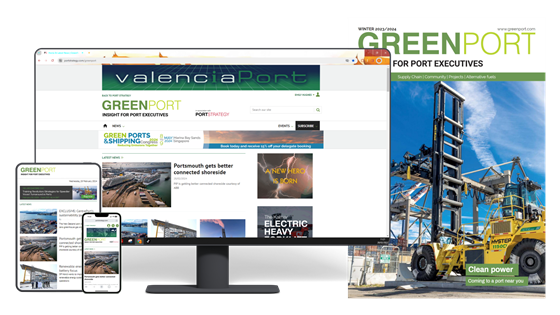Australasia – Page 3
-
 News
NewsNewcastle leads the way at first GreenPort Oceania Congress
The City of Newcastle was host to the first ever GreenPort Congress in the Southern Hemisphere
-
 News
NewsPort focuses on mussel bed restoration
New Zealand’s Ports of Auckland Ltd (PoAL) has partnered with conservation group Protect Our Gulf Inc (POG) on a mussel bed restoration project.
-
 News
NewsSustainability spotlight at GreenPort Oceania
The inaugural GreenPort Congress Oceania conference has kicked off in Australia
-
 News
NewsGreenPort heads down under
For the first time, GreenPort will be heading to Australia with its inaugural Oceania congress
-
 News
NewsGreenPort heads to Oceania
GreenPort Congress & Cruise will hold its inaugural Oceania event in February 2023
-
 News
NewsOceania ports face unprecedented environmental challenge
Oceania ports are facing mounting environmental challenges
-

-

-
 News
NewsAutomatic waterway cleaning solution
A Solar Powered Automatic River Cleaner (SPARC) trial at the Port of Brisbane has been accepted into the IAPH World Ports Sustainability Program’s Sustainability Awards.
-
 News
NewsEcosystems rebuild at Lyttelton
New Zealand’s Lyttelton Port Company (LPC) has developed an industry-leading approach to biodiversity in its harbour.
-
 News
NewsElectric ferry ‘first’
What’s said to be the Southern Hemisphere’s first fully electric passenger ferry lhas launched in New Zealand
-
 News
NewsHarnessing renewable power
An Australian deepwater port has partnered with a green energy supplier to achive 100% power by reneable energy
-
 News
NewsPort sustainability award
An Australian port’s commitment to environmental, social and governance goals has been recognised
-
 News
NewsDeveloping green hydrogen
A green-thinking Australian port is driving forward development of a hydrogen economy.
-

-
 News
NewsPort sustainability kudos
Australia is demonstrating its commitment to environmental practice with green innovation.
-
 News
NewsPort sustainability kudos
Australia is demonstrating its commitment to environmental practice with green innovation.
-
 News
NewsPorts Australia supporting mental health
Ports Australia has joined a movement aiming to promote the mental health and wellbeing of transport and logistics workers.
-
 News
NewsClean green record
100% electric vehicles have enabled a New Zealand port to set a new green record.
-
 News
NewsNurturing new talent
An Australian port is helping spearhead an Indigenous STEM Scholarship to help young people realise their potential.







